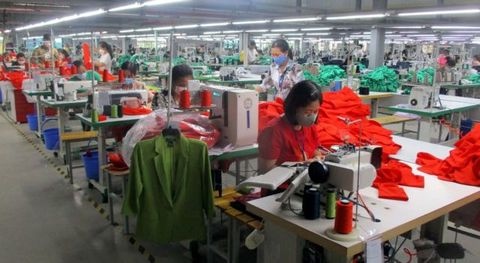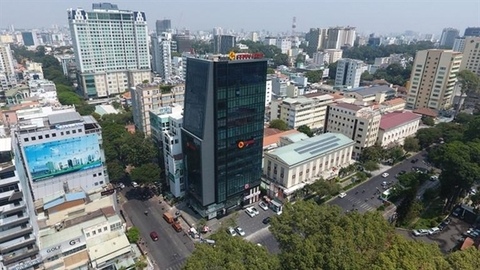Despite losses, Coca-Cola and PepsiCo keep on expanding in VN
Despite losses, Coca-Cola and PepsiCo keep on expanding in VN
Coca-Cola and PepsiCo, two famous foreign brands currently dominating some 80 percent of the local market share in soft drinks, continue to expand despite heavy losses, according to statistics of the Vietnam Beer, Alcohol and Beverage Association.

Data from a local taxation agency showed that Coca-Cola’s accumulated losses till September 30, 2011 were at VND3.77 trillion ($180.9 million), while PepsiCo suffered a VND1.2 trillion ($57.59 million) loss through the end of 2010.
The prominent presence of beverages produced by both companies in the Vietnamese market makes consumers think that they are two very successful foreign beverage makers, according to Dau Tu newspaper.
However, data from the Ho Chi Minh City Tax Department said Coca-Cola has continuously suffered losses since entering Vietnam about 10 years ago.
Over those 10 years, Coca-Cola’s annual losses have always exceeded VND100 billion ($4.8 million), occasionally accounting for nearly 1/3 of annual sales.
Coca-Cola’s corresponding losses in 2006 and 2007 were VND228 billion and VND198 billion, respectively.
In 2011, the company lost VND39 billion.
As of the end of September 2011, Coca-Cola’s equity was negative at VND800 billion, meaning that the company is active only based on loans, including loans from the parent company, or customer money, said Dau Tu newspaper.
The situation at PepsiCo seems to be better, although from its establishment until 2007 the firm also suffered continuous losses.
With prolonged losses since 1991, the accumulated losses on the balance sheet assets of PepsiCo were at VND1.206 trillion as of December 2010.
PepsiCo became profitable for the first time in 2007 with a total taxable income of VND58 billion. But because the firm later had its balance sheet changed to losses, it was not subject to corporate income tax (CIT).
PepsiCo had VND141 billion, VND137 billion and VND191 billion in profits in 2009, 20010, and 2011, respectively. But then the balance sheets were also changed to the stance of losses.
Dau Tu newspaper wondered if PepsiCo’s profit is commensurate with its revenue in the Vietnamese market. PepsiCo sales were at VND3.84 trillion in 2009, and VND6.915 trillion in 2011. That is an operating profit-to-sales ratio of about 2 percent.
Continuous expansion
After 18 years of doing business in Vietnam, Coca-Cola’s total equity is depleted. Meanwhile, PepsiCo has only made a modest profit.
However, in late October, Muhtar Kent, chairman and chief executive of Coca-Cola, visited Vietnam and announced that the company would pour more than $300 million into Vietnam in the next three years , bringing the total investment in this market to half a billion dollars over the next five years.
Meanwhile, PepsiCo is also continually opening new factories, including a $45 million facility in Dong Nai Province, and the recently-opened $73 million plant in the northern province of Bac Ninh. Its total investment in Vietnam is also at about $500 million.
According to the HCMC Tax Department, Coca-Cola Philippines is losing money because the raw material prices are very high compared to its selling prices.
"However, the raw materials are exclusively supplied by its parent company, so the price of flavors Coca-Cola Vietnam takes into account are a very high proportion, at over 60 percent of the selling price", Le Duy Minh, Head of a Tax Inspection Team of the department, told Dau Tu.
For PepsiCo, the proportion of flavoring in the selling price of the company is not as large as Coca-Cola, so the business is profitable.
Other foreign retailers like Big C and Metro Cash & Carry are also suffering big losses, but continually expand investment.
Local firm elimination
A question posed by senior investment professionals is what Vietnam will gain when such FDI projects suffer continuous losses.
In this case, of course, the first answer is jobs; the market is wide open, and consumers are using the world's leading products. Another thing is tax collection for the state budget.
Meanwhile, the negative impact very clear: is the elimination of local firms.
"Initially, when the foreign enterprises enteredVietnam, we only allowed them to set up a joint venture, for fear that they would acquire domestic companies. But many local businesses have been eliminated anyway,” an expert told Dau Tu newspaper.
tuoitrenews






















